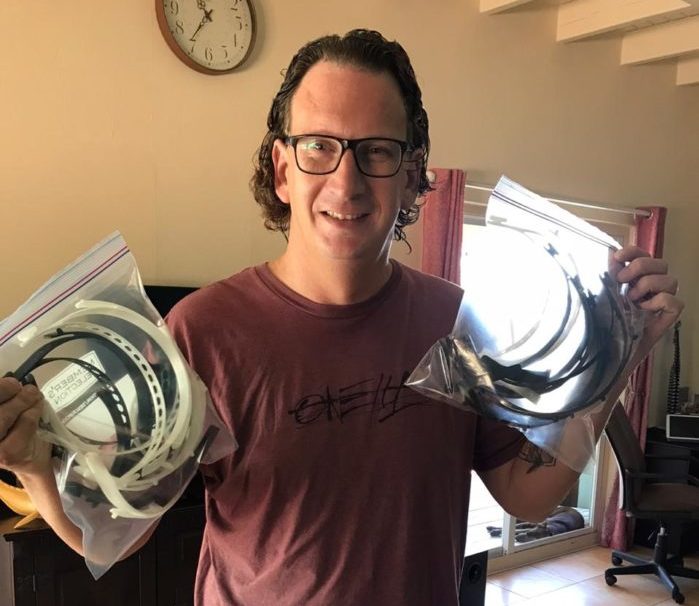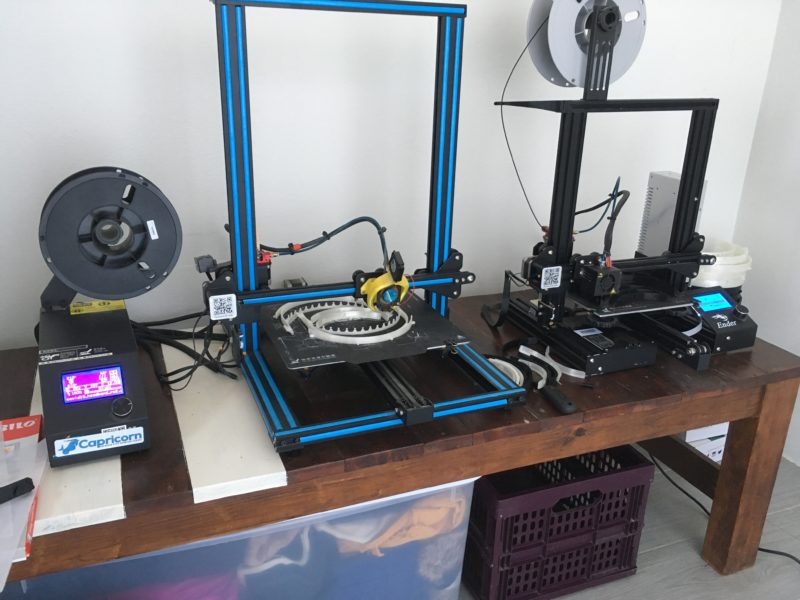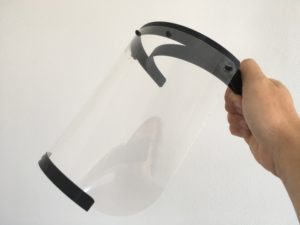3D-Printed Face Shields for the Aruban Community

With 300 face shields already fabricated through 3D printing, Pieter Verduijn, Makerspace and Technology teacher at ISS school International School of Aruba (ISA), has shown what innovation and generosity look like in times of adversity. As Dennis Willeford, Head of School at ISA, writes “Pretty cool that ISA is having a direct impact helping with the crisis here. Pieter is trying to help prepare for the wave. He is donating his time and ISA is donating the materials. We are all grateful.”
Learn more from Pieter about the collaborative shield-printing initiative, how students have responded, and his thoughts for other educators in these times.
How did the initiative begin?
A friend of mine who is a house doctor asked me if I could make her a face shield to keep her safe. I asked her how many she wanted and started 3D printing right away. The people from the Makerspace of the local library asked me if I could help them out too, so we decided to join forces. Right now, we are making face shields for the whole health care system of Aruba. We’ve fabricated 300 face shields already together.
Please tell us more about the project.
The face shields are an idea from Jozef Prusa, a 3D printing icon from Czechia. He already used his company to provide many for the Czechian Healthcare system, and he provided the files online so that everyone could print them.
When my house doctor friend asked me if I knew how to print these designs, it was an easy job for me to pick up. However, I needed to use the printers from school, and it was already closed because of the virus. I asked the Head of School, Dennis Willeford, if I could take the printers and the filament home to produce the face shields. He immediately thought it was a great idea. I had green light to do what was needed, and ISA donated the filament needed for those prints. I printed 10 pieces for the doctors office and they were super happy with them.


After we made a Facebook post on the page of our school, things started moving really quickly. The post got shared a lot and tons of reactions came in. More people on Aruba who also had 3D printers responded that they wanted to help. And their help is needed. Aruba’s Health Care System had an outstanding order for those shields in the Netherlands. But since the crisis has struck hard in the Netherlands too, those promised face shields weren’t coming anymore. So 15 people on Aruba with 3D printers, including me, are now providing for all Aruban Health Care foundations.
Only 1 of us is driving around and picking up our prints. We put them in a bag at our mailboxes to be picked up, sorted, and brought to the foundations. In order to reduce the risk of contamination, the prints go straight from the printer into a ziplock bag. They are only to be taken out by the health care professional. In between patients, the doctors clean their mask with alcohol. But after a day, they are worn out with sweat and other stuff on them, so they are thrown out. That’s why a lot of them are needed.
What has the experience of this initiative been like?
First of all, I wanted to do something as I felt really powerless just watching this horror unfold. This way, I’m contributing a tiny bit in the fight against the virus.
But what also meant a lot to me was how the students online responded; they were very proud and supportive. I really had no idea that my little action would have such an impact. I always try to teach the children in my makerspace classes that there is always a way and to search for creative solutions. One of my students — who couldn’t manage to understand that before — said to me he finally understood what I meant, that he understands the importance of thinking outside of the box.
What encouragement or insight would you offer to other educators navigating these times?
When I meet with my students online, I notice that they want some of that old safe feeling back. It’s hard to do when teaching STEAM and makerspace classes online, but we’re managing it so far and creating some really awesome products. Also, by doing this for the community of Aruba, the students see an example of our three core values of ISA: Community, Character and Leadership. Teaching is not only wanting the students to show their skillset; sometimes as teacher, you have to show them yours.
Our thanks to Pieter and all those involved for their inspirational and critical service in their community. We also appreciate Pieter taking the time to share the story with us all! Follow him on twitter for other updates and resources.

Especially in these days of community need, ISS is looking to spotlight stories that connect and inspire us. Do you or your students have a story of compassionate service, innovative learning, or just thoughtful ways to find and share joy? We’d love to see them on #ISSedu or emailed to socialmedia@iss.edu.







